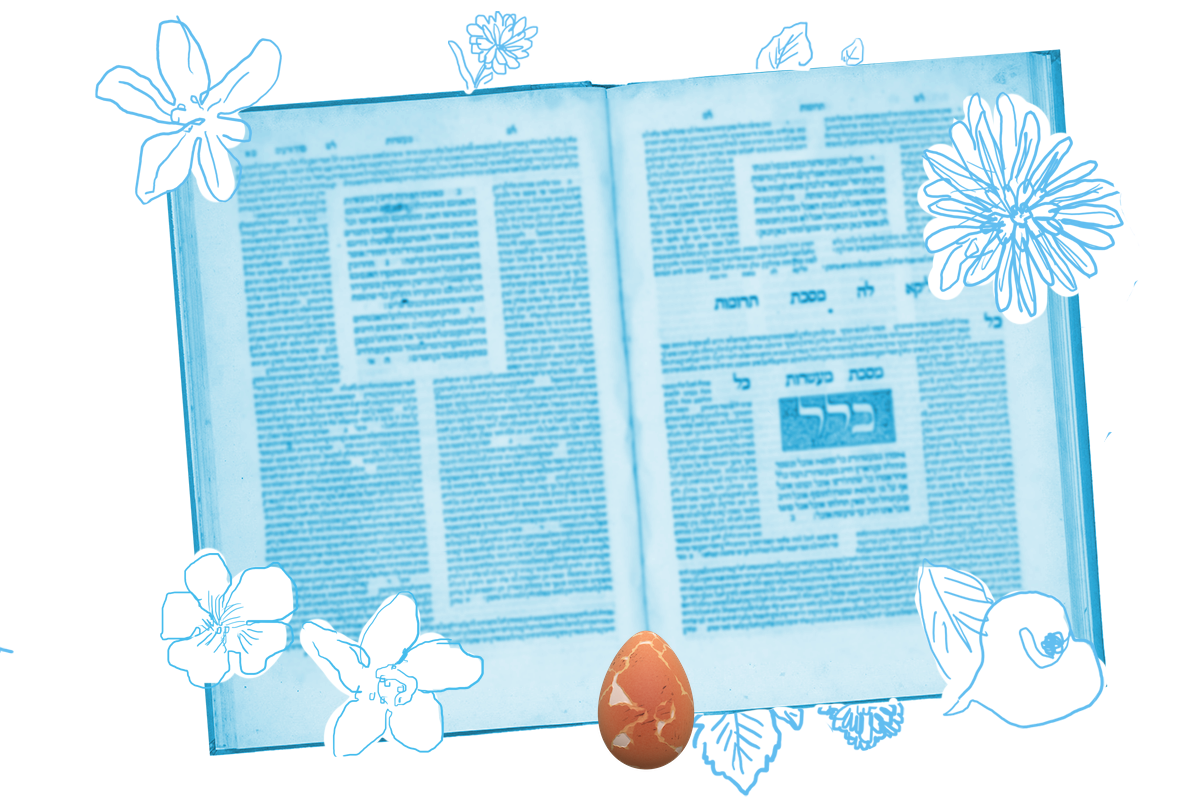Tractate Beitzah deals with general questions of festival observance. Regarding festivals — the first and last days of Passover, Shavuot, Rosh Hashanah, the beginning of Sukkot and Shemini Atzeret/Simchat Torah — the Torah makes clear that labor is forbidden (e.g. Leviticus 23:2), just as it is on Shabbat. But the sages understood that there were key differences for festivals.
Some labors that are prohibited on Shabbat are permitted on festivals if they allow people to prepare food, in keeping with the Torah’s dictum regarding Passover: “You shall celebrate a sacred occasion on the first day, and a sacred occasion on the seventh day; no work at all shall be done on them; only what every person is to eat, that alone may be prepared for you.” (Exodus 12:16) Allowing food preparation was also a way to increase the joy of the festival, as the Torah explicitly commands (e.g. Deuteronomy 16:14–15). In addition, working on a festival was a less severe violation than working on Shabbat. This tractate teases out the details of these differences, while also dealing with other festival-related concerns, such as what happens when a festival falls adjacent to Shabbat. It has five chapters.
The first chapter of Tractate Beitzah clarifies the laws of muktzeh, items that may not be moved or perhaps even handled on a sacred day, for festivals. The first case discussed involves eggs, giving this tractate its name. This chapter contains a number of debates between Hillel and Shammai.
Chapter two of Tractate Beitzah continues to present debates between Hillel and Shammai, this time introducing the concept of eruv tavshilin, which allows one to prepare food on Shabbat for a festival that falls on the next day. This chapter also considers the rules of immersing objects or bringing sacrificial offerings on a festival.
With your help, My Jewish Learning can provide endless opportunities for learning, connection and discovery.
The third chapter of Beitzah moves on to questions of trapping animals on festivals (OK if they’re domesticated animals, not OK if they’re wild), judging firstborns for blemishes on a festival (acceptable if the procedure is started before the festival), and also explicitly buying and selling animals on a festival — though there are work-arounds to ensure everyone has a nice festival meal.
Chapter four reminds us that some labors permitted on festivals should still be done in a different manner than they are performed on ordinary days so as not to mar the sanctity of the festival — though these modifications are not designed to be overly cumbersome, which could detract from the joy of the festival.
The fifth and final chapter of this tractate covers primarily laws of physical boundaries (how far one may travel), muktzeh (again), and finally leftovers.



